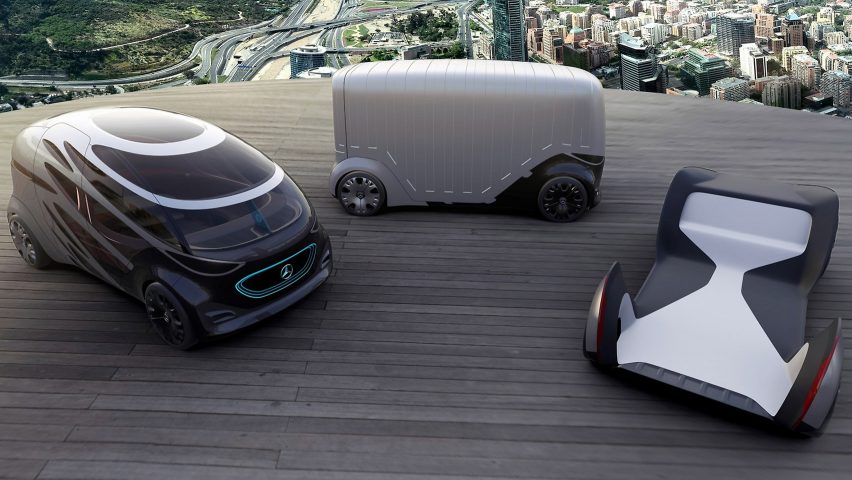The latest concept vehicle from German auto brand Mercedes-Benz is made up of modular components, meaning it can morph from a car into a van.
Called Vision Urbanetic, the concept centres around a self-driving, electrically powered "skateboard chassis", to which two interchangeable body modules can be attached.
One of these bodies allows the vehicle to be transformed into a ride-sharing car, able to accommodate up to 12 passengers, while the other allows it to become a van for the transportation of goods, able to transport up to 10 loading palettes.
Mercedes-Benz came up with the concept based on the idea that drivers currently have to use different transportation systems for people and cargo.
"The aim of the concept is to transport more people and goods with fewer vehicles on almost unchanged road infrastructure in order to relieve city centres and at the same time meet continuously growing mobility requirements and customer wishes," explained the brand.
The space freed thanks to the absence of a driver's cab and an engine means that the vehicle can accommodate the maximum amount of passengers or a higher volume of goods – with a total vehicle length of 5.14 metres and a load space length of 3.7 metres.
The idea is that users order the on-demand vehicle via a smartphone, much like they would an Uber. As the autonomous chassis incorporates all the driving functions, it can make its way to its next job location without a body attached.
The passenger would select the function they require, car or van. The Vision Urbanetic would then drive to a changeover platform, where the modules are changed over either automatically or manually in just a few minutes.
"Before the body is disconnected, hydraulically controlled supports on the road surface ensure the vehicle is stable before lifting it slightly," the brand explained.
"The rear wheels disengage and move outward, enabling removal of the body without any additional lifting equipment. Widening the rear track clears the way for the interchangeable body to glide backwards on a track system," it continued.
The vehicle would be able to observe its surroundings via multiple cameras and sensor systems. It would be able to inform nearby pedestrians that it has recognised them using a large-format display positioned on its front.
Mercedes-Benz believes that its fully-electric car-sharing concept will contribute to an improved quality of life in city centres, lowering carbon dioxide emissions, as well as lessening noise pollution and reducing the amount of vehicles on the road.
Swedish car manufacturer Volvo has also recently unveiled its vision of the future of urban mobility with an all-electric, self-driving vehicle that can double up as a mobile office, bedroom or living room.

